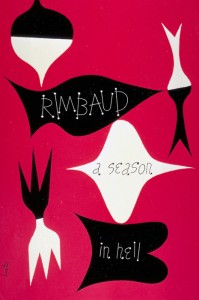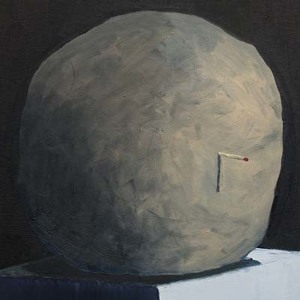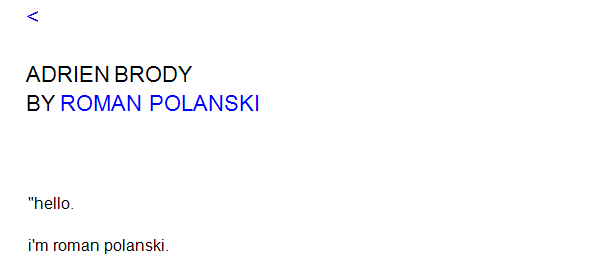I Hate Reality
 Here is the outline for my novel: there is a complication! but it’s okay because there is a nonsensical invention to solve it! but it breaks! but it’s okay because there was no complication in the first place! I’m a writer!
Here is the outline for my novel: there is a complication! but it’s okay because there is a nonsensical invention to solve it! but it breaks! but it’s okay because there was no complication in the first place! I’m a writer!
I hated Mission Impossible: 4 but Chris Toll told me I was wrong but I’m not wrong and here is why.
Take a look at the scene where the mask-making doohickey malfunctions when they are at the hotel to make the deal with the French assassin and the henchman. Here we have some technology that is ridiculously advanced, capable of laser etching into some polymer substance, and also portable and also capable of paint mixing and spraying the paint (albeit not flawlessly, as the machine breaks down). OK, no problem; I don’t care about the probability of that. I’m happy to accept that they have such a device. READ MORE >
woman reading A Season In Hell 2 days before the world ends-but-won’t has 22 thoughts

1. Rimbaud was a hot twink.
2. Rimbaud loved the shit out of god.
3. If Rimbaud read that article in Time about how Mother Teresa didn’t feel the presence of god for 50 years but did her work anyway, he probably wouldn’t beat himself up so much about not experiencing “celestial calm.”
4. Celestial calm is spa spirituality.
5. Who wants to be numb?
6. I want to be numb.
Watch the ALT LIT GOSSIP 2011 Awards Broadcast
ALT LIT GOSSIP ran a live awards broadcast hosted by Steve Roggenbuck. Below you can watch the archive footage.
The Top 20 Albums of 2011 According to David Fishkind
20. Go Tell Fire to the Mountain – WU LYF
 I noticed a band with a ridiculous name appearing on music blogs and googled the name. Something like World Unite Lucifer Youth Federation came up and I navigated to their website. The page was cryptic and dark. I watched videos of what seemed like old stock footage under the impossible-to-decipher vocals and heavy drum beats. I downloaded the album, and the next day listened to it while picking strawberries in the rain. It was a Friday and I was cold and my fingers began to prune. Later I would drive to my girlfriend’s house 100 miles away.
I noticed a band with a ridiculous name appearing on music blogs and googled the name. Something like World Unite Lucifer Youth Federation came up and I navigated to their website. The page was cryptic and dark. I watched videos of what seemed like old stock footage under the impossible-to-decipher vocals and heavy drum beats. I downloaded the album, and the next day listened to it while picking strawberries in the rain. It was a Friday and I was cold and my fingers began to prune. Later I would drive to my girlfriend’s house 100 miles away.
19. An Empty Bliss Beyond This World – The Caretaker
 After a fight with my girlfriend weeks earlier—I think, or later, or maybe just moments earlier (it’s hard to remember a summer anyway)—I found myself on Facebook deleting the majority of my friends. I needed something to listen to, as the process would end up taking two hours. I put on The Caretaker’s new album and thought I’d made a mistake. It was just sounds, old-seeming sounds, like the musical accompaniment to a 1930s black-and-white Looney Tunes, or Louis Armstrong’s “St. James Infirmary Blues.” Weeks later I listened to it again lying on the ground, and then with my girlfriend in bed, where we agreed we would purchase the record on vinyl the following summer once we got a lease and I moved my record player from my parents’ house to New York.
After a fight with my girlfriend weeks earlier—I think, or later, or maybe just moments earlier (it’s hard to remember a summer anyway)—I found myself on Facebook deleting the majority of my friends. I needed something to listen to, as the process would end up taking two hours. I put on The Caretaker’s new album and thought I’d made a mistake. It was just sounds, old-seeming sounds, like the musical accompaniment to a 1930s black-and-white Looney Tunes, or Louis Armstrong’s “St. James Infirmary Blues.” Weeks later I listened to it again lying on the ground, and then with my girlfriend in bed, where we agreed we would purchase the record on vinyl the following summer once we got a lease and I moved my record player from my parents’ house to New York.
18. Leave Home – The Men
 At some point in the summer I wanted to only listen to loud music. But this record came out before then. Recommended by a friend, it took me three tries to get through the first song, usually stopping the track on my iPod at work before even 90 seconds had passed. When I finally did break through that first song, I listened to the album a lot more, mostly driving, once in my girlfriend’s hometown, after we’d purchased Blizzards from Dairy Queen; I remember she asked who the band was and upon my reply, said, “I thought this was from the 80s.” We would lie in her basement and eat the ice cream until one of us, almost definitely me, started to fall asleep.
At some point in the summer I wanted to only listen to loud music. But this record came out before then. Recommended by a friend, it took me three tries to get through the first song, usually stopping the track on my iPod at work before even 90 seconds had passed. When I finally did break through that first song, I listened to the album a lot more, mostly driving, once in my girlfriend’s hometown, after we’d purchased Blizzards from Dairy Queen; I remember she asked who the band was and upon my reply, said, “I thought this was from the 80s.” We would lie in her basement and eat the ice cream until one of us, almost definitely me, started to fall asleep.
Home for the Holidays’s “What is your book about?”

One Holiday gift you can expect from friends and relatives is the question, “What is your book about?” or, “What are you working on?” In need of advisement, I asked several authors how they reply to Uncle Scott while enjoying the crown roast.
I don’t blink–I think that is important. I say that I’m working on a novel whose style can best be described as the lovechild of John Grisham and Dan Brown, and that it’s the first book of a trilogy set entirely in an Applebee’s restaurant. I transform my voice into a strained whisper at this point and admit that the pressure is causing me to have a crisis of faith, then I make vague allusions to something I state I may or may not have done at a rural truckstop. If they’re extra-persistent, I say, “Let me just explain the book’s main plot,” and then I describe the most recent Hoarders episode I saw on A&E. – Alissa Nutting, author of Unclean Jobs For Women And Girls
Was our need to be understood more important than a living wage?
“Amazon’s success didn’t just come from predatory buying and selling practices. Nor did it come from of simple ingenuity. It was a combination of these elements and deals struck by one generation with itself regarding personal identity, worker’s rights, and the value of stock speculation. Was the right to have green hair and torn t-shirts worth it? Was our need to be understood more important than a living wage? Were these even the choices we faced? . . . Bezos once bragged in a Wall Street Journal interview that he told temp agencies to hire the “freaks.” The assumption at the time was that Bezos wanted creativity. But his creative staff wasn’t coming out of the temp agencies, the warehouse recruits were. And I never met a “freak” who wouldn’t throw over a decent wage to work somewhere lousy if they felt they belonged. These were people who wanted to be a part of something. They wanted to be valued for who they were, rather than what they produced. I often wondered if what Bezos really figured out was that if you gave freaks a home, they would give you everything they had-their best ideas, their longest days, and their rights on the job.” — Vanessa Veselka, on attempting to unionize Amazon
The Price of Revelation
This week, I read an article in the New York Observer that baffled, bothered and bewildered me. The article tells a story about Marie Calloway, a “part feminist, part fame whore,” young woman writer (pseudonymous) who e-mailed a much older Internet writer in New York she admired, told him she was coming to the city and wanted to sleep with him, slept with him, and wrote a 15,000 word “story, “Adrien Brody,” about the experience. None of that is necessarily shocking though some of the details (his relationship status, for example), make the assignation a bit sordid.
We are in the age of Internet confession. Have blog, will reveal, memoir, pixilated for a hundred random strangers to read. Or more. I wonder about the cost of confession these days, and the reach.
Pen Pals: A Conversation with Nate Slawson
 Nate Slawson is the author of Panic Attack, USA (YesYes, Fall 2011) and two chapbooks, The Tiny Jukebox (H_NGM_N Books) and A Mixtape Called Zooey Deschanel (Line4). Recent work has appeared or is forthcoming in Diode, Handsome, alice blue, Slope, Cannibal, horse less review, Corduroy Mtn., Forklift Ohio, DIAGRAM, Typo, and other places. He lives in Chicago where he teaches and runs cinematheque, an indie press that publishes chapbooks of poetry and prose.
Nate Slawson is the author of Panic Attack, USA (YesYes, Fall 2011) and two chapbooks, The Tiny Jukebox (H_NGM_N Books) and A Mixtape Called Zooey Deschanel (Line4). Recent work has appeared or is forthcoming in Diode, Handsome, alice blue, Slope, Cannibal, horse less review, Corduroy Mtn., Forklift Ohio, DIAGRAM, Typo, and other places. He lives in Chicago where he teaches and runs cinematheque, an indie press that publishes chapbooks of poetry and prose.
I recently corresponded with Slawson about his new book from YesYes, Panic Attack, USA, but as with any great conversation, our subject matter ran the gamut from basketball to Neutral Milk Hotel—sort of like the book itself with its strange and penetrating imagery, its tide-like rhythm-making, its obsessions, its pop culture memories. I pushed Slawson to talk about his poems in uncomfortable ways (for any poet), and he engaged—and set me straight a few times. And then we talked about good, old-fashioned poetics. Slawson felt like my pen pal for a week or so. Below is our conversation in its entirety–unedited. It felt like the thing to do.
AO: Talk to me about the first section of Panic Attack, USA, The Teenage Sonnets. There’s an American tradition of reducing the sonnet form to its most basic constituent part: 14 lines. What’s the significance, for you, in writing the American sonnet?
SLAWSON: Sonnets are rad. The first poems I ever wrote were sonnets, proper iambic, rhyme-schemed sonnets. And I thought they were fun to math. It was kind of like doing math, kind of like a word problem where the train from Poughkeepsie needs to arrive in Baltimore at 6:22 pm with its 140 passengers. But as I read more poems, stumbled upon more poets (my partial travels, chronologically: O’Hara, Lowell, Dickinson, Berryman, Stevens, Natasha Trethewey, Donald Justice), I was enthralled by how form was used. For a young (read: halfwitted) student/writer, there’s something remarkably badass and American about making an established form into something else but still calling that form the form.
AO: I wrote a lot of sonnets early on too. I was writing these intricate things about snails and kids smoking in the streets and, well, my neighborhood in L.A. Eventually, these sonnets got torn apart and recycled into other poems, some of which found their way into my first book. Do you think part of being an American poet is learning how to dismantle (tradition, form)?
NS: I kind of want to read those early Alexis Orgera sonnets. And by kind of, I mean very very. [Nate: I just looked for those old sonnets. They are gone, gone, gone.] A part of me feels I’m always trying to re-write my own version of “Where You’ll Find Me Now” (from Neutral Milk Hotel’s On Avery Island). With the “tear into me” and the “kids in their cars cigarette smoking.” And yeah, I think learning how to dismantle is essential part of being an American poet (all the awesome poets do it). And learning tradition and learning form are the constant, the must. That comes first. We come to form and tradition through different experiences—books, teachers, friends—and proceed with whatever steam our mind-wheels generate.
AO: The Teenage Sonnets, again, as the first section of the book, set into motion the trajectory of the book: grappling with violent obsession, taking road trips, and recalling all kinds of musical influence. Could you talk a little about how these moments inform Panic Attack, USA?
NS: I look at this section as the clumsy (narrative trajectory-wise) introduction to what happens in the rest of the book. Along with the idea of TEENAGE sonnets being scattered and earnest and obsessive and trying so damn hard to convince “you” to show “me” your non-matching underwear.
AO: I would really love it if you’d talk more about the book’s trajectory. If the Teenage Sonnets are the most “earnest,” maybe in terms of teenage naivete, have you written a coming-of-age story that perhaps widens both the world and the heart? Maybe it’s not fair to ask you as the writer. Maybe that’s the job of the reader, but I’m always curious about what the writer sees.
NS: I don’t think I’m smart or skilled enough to write a coming-of-age story. I mean, I hope there’s some of that happening in the book—as the heart explodes it covers the world in its beautiful heart explosion. And that is, in some way, how I wanted the book’s quasi-narrative to function. But it was never all-consuming or mapped out. If you or another reader see a/the story, rad.
AO: In terms of micro-story (vs. meta-narrative), in regard to individual poems I’m very interested in your line breaks. I like the surprise I feel line by line, particularly in the shorter-lined poems. For instance, in “You Are a Saxophone,” you break on articles and prepositions in a way that creates a neat rhythm. You write, “a pain in your heart / sprung from the / blues & which / when I cup my / hand to your chest / be like thunderous / rain like wasps in / a coffee can & thou / nettles & dry river- / bed thou sermon / of fire sister & we / hymnal of matchsticks?” My sense is that you’re breaking lines rhythmically, almost as though you’re rocking back and forth (ala Nate Pritts at a reading) as you write. Yes? No?
NS: Yes x 100! Lines are sonic, and they break or continue because of sound. I’m sure there are theories out there people tell people or teach their students, but I and you and we can do what whatever the hell we like. And I do a lot of rocking: reading books, writing, giving readings. I never sit when I give a reading. I need to dance a little. I need to love-up the microphone. Sometimes people joke me (if you do it to my face it’s cool) and/or I can sense there’s what the fuck? vibe in the crowd, but I think almost everyone realizes 1) it’s something I can’t not do and 2) it’s something that’s a part of the poems. Though I hope some people like the sway of my hips.



